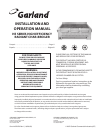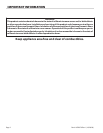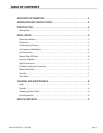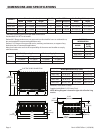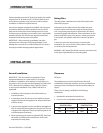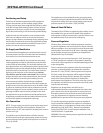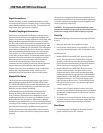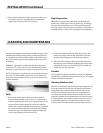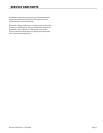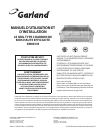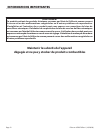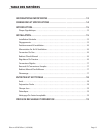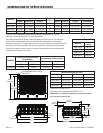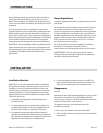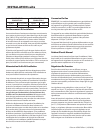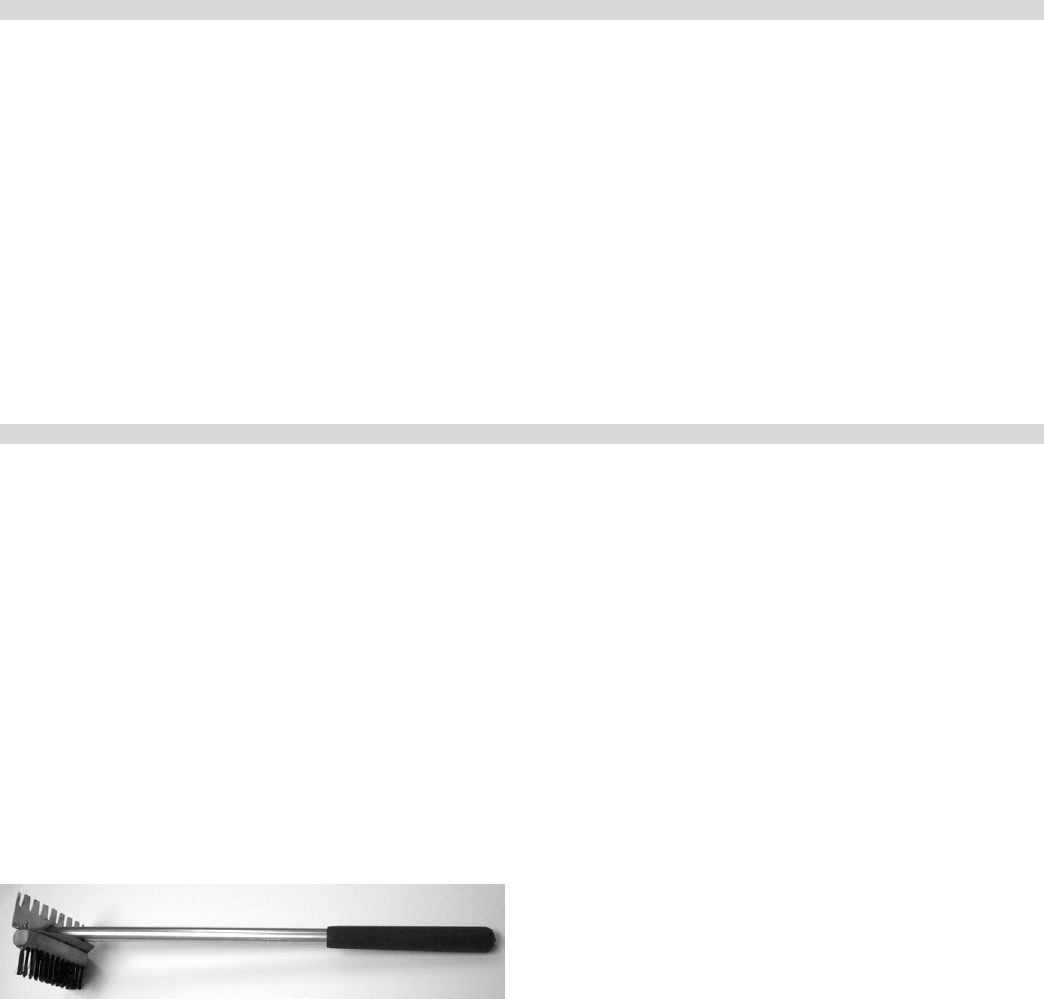
Part # 4522970 Rev 1 (10/28/09)Page 8
INSTALLATION Continued
2. When shutting down for longer periods, turn the power
switch(es) to the “OFF” position and turn the manual
supply shut o valve to the “OFF” position.
Final Preparation
New units are wiped clean with solvent at the factory to
remove any visible signs of dirt, oil, grease, etc., remaining
from the manufacturing process. They should be washed
with hot, soapy water to remove any solvent or oil residue or
installation dust or debris before using for food preparation.
CLEANING AND MAINTENANCE
Any piece of equipment works better and lasts longer when
maintained properly and kept clean. Cooking equipment is
no exception. Your Garland Char-Broiler must be kept clean
during the working day and thoroughly cleaned at the end
of each day.
WARNING: If gas odors are detected, the gas supply must
be turned “OFF” at the main shut-o valve and the local gas
company or authorized service agency contacted for service.
NOTE: A wire brush is supplied with your broiler for cleaning
your rack. The solid stainless steel tooth side of the brush is
for hard to remove debris and the reverse wire bristles side is
for ner materials.
Daily
1. Remove the broiler grates. Wire brush them clean of
any encrusted materials and wash in hot, soapy water. A
common cleaning practice is to turn grates upside-down
to burn o encrusted material. Do not do this with the
radiant char-broiler! The ame from the burner is shielded
by a cast iron radiant, with the result that heat not ame
reaches the grate. It is likely that cooked-on-matter will
cook in even deeper rather than burn o.
2. Remove the radiants and wire brush them clean, then
wash in hot soapy water. A rule of thumb is that if the
grates are becoming encrusted, so are the radiants.
3. Spills should be wiped as they occur. At the end of the
day drip tray pans should be washed in hot soapy water,
replacing the trays once cleaned. DO NOT operate the
broiler with out the drip trays.
Periodic
Your Garland Char-Broiler should be checked and adjusted
periodically by qualied service personnel as part of a regular
kitchen maintenance program.
Cleaning Stainless Steel
All stainless steel body parts should be wiped regularly with
hot, soapy water during the day, and with a liquid cleaner
designed for this material at the end of each day. Do not
use steel wool, abrasive cloths, cleaners, or powders! If it
is necessary to scrape stainless steel to remove encrusted
materials, soak the encrusted area with wet cloths to loosen
the material, then use a wood or nylon scraper. Do not use
a metal knife, spatula, or any other metal tools to scrape
stainless steel. Scratches are almost impossible to remove.



